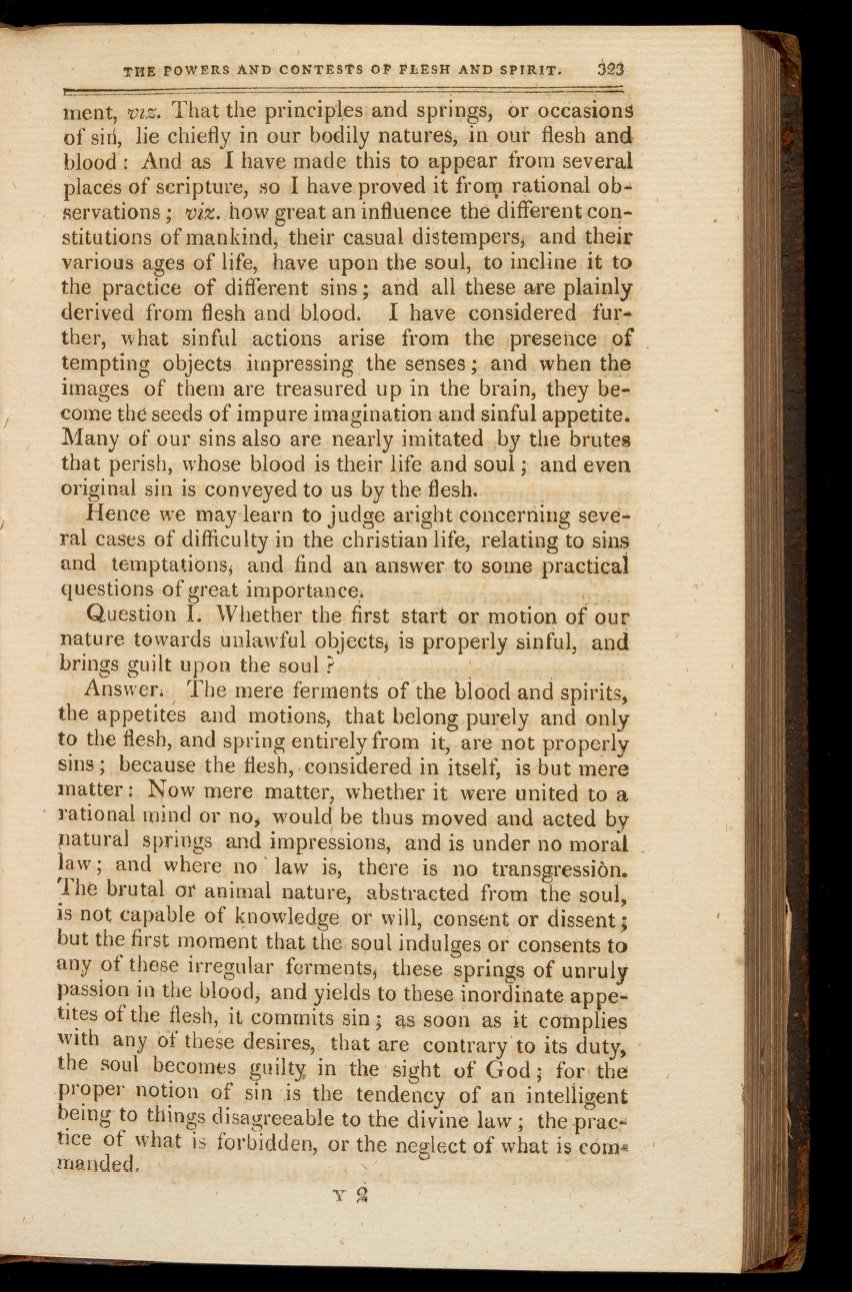

THE POWERS
AND
CONTESTS
OP
FLESH
AND
SPIRIT.
323
ment,
viz.
That
the
principles and
springs,
or
occasions
of
sin,
lie chiefly in
our
bodily
natures,
In
out
flesh
and
blood
:
And as
I
have
made
this to
appear
from
several
places
of
scripture,
so
I
have proved
it
from
rational ob-
servations
;
viz. how
great
an influence the different
con-
stitutions
of
mankind, their
casual
distempers,
and
their
various
ages
of
life,
have
upon
the soul,
to
incline
it
to
the practice
of
different
sins
;
and
all these
are plainly
derived
from
flesh
and
blood.
I
have
considered
fur-
ther,
what sinful actions arise from the presence
of
tempting
objects impressing
the
senses
;
and
when
the
images
of
them
are treasured up
in the brain, they
be-
come the
seeds
of
impure imagination and sinful
appetite.
Many
of our
sins also
are
nearly
imitated by
the brutes
that
perish,
whose
blood
is
their
life
and
soul
;
and even
original
sin
is
conveyed
to
us by
the
flesh.
Hence
we
may
learn
to
judge aright
concerning seve-
ral
cases
of
difficulty
in
the christian
life,
relating
to sins
and
temptations, and
find
an answer
to some
practical
questions
of
great importance.
Question I: Whether
the first
start
or
motion
of
our
nature
towards unlawful
objects,
is
properly
sinful,
and
brings guilt
upon the
soul
r
Answer.
The
mere
ferments
of
the blood and spirits,
the
appetites and
motions,
that
belong
purely and only
to
the
flesh,
and
spring entirely
from
it,
are
not properly
sins
;
because the
flesh,
considered in
itself,
is
but mere
matter
:
Now mere matter, whether
it
were
united
to
a
rational
mind
or no, would
be
thus
moved
and acted
by
natural
springs and impressions, and
is
under
no
moral
law;
and
where no law
is,
there
is
no transgressiòn.
The
brutal
or animal
nature, abstracted
from
the soul,
is
not capable
of
knowledge
or
will,
consent or
dissent;
but
the
first
moment
that
the soul indulges
or
consents
to
any
of
these
irregular ferments,
these springs
of unruly
passion
in
the blood,
and
yields to
these
inordinate appe-
tites
of
the
flesh,
it
commits
sin
;
as
soon
as
it
complies
with any
of these
desires,
that
are contrary'
to its
duty,
the
soul
becomes
&uilty
in the
sight
of
God;
for
the
.proper notion
of
sin
is the tendency
of
an intelligent
being
to things
disagreeable to the divine law
;
the
-prac-,
tice
of
what
is
forbidden,
or
the neglect
of
what
is
coma
mauded.
Y

















